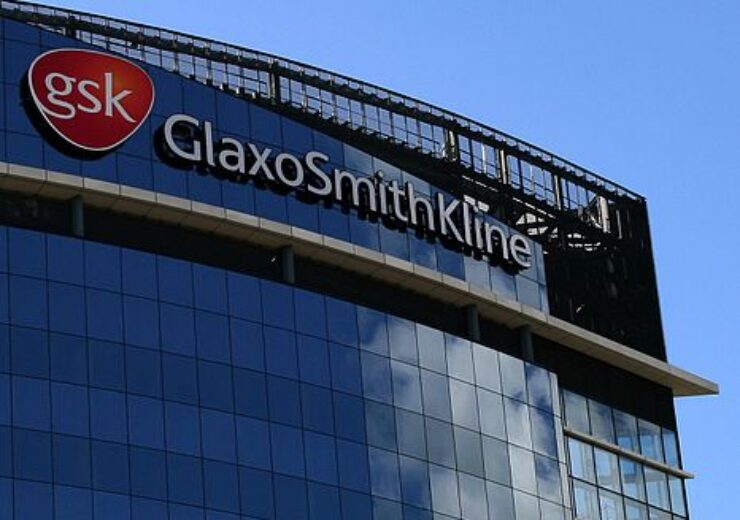The EC regulatory approval for BLENREP is supported by data from the pivotal DRiving Excellence in Approaches to Multiple Myeloma (DREAMM-2) study

GlaxoSmithKline head office in London, UK. (Credit: Ian Wilson/Wikipedia.)
GlaxoSmithKline (GSK) has received the European Commission (EC) conditional marketing approval for BLENREP (belantamab mafodotin) to treat a type of multiple myeloma.
The drug is indicated to treat multiple myeloma in adults who previously received four therapies, whose disease is refractory to at least one proteasome inhibitor, one immunomodulatory agent, and an anti-CD38 monoclonal antibody, and whose disease is still progressing on the last therapy.
BLENREP is an advanced humanised anti-BCMA treatment, intended for patients whose disease has progressed regardless of the standard of care. The drug works in a multi-faceted mechanism to target BCMA, a cell-surface protein expressed on multiple myeloma cells.
GSK chief scientific officer and R&D president Hal Barron said: “The approval of BLENREP marks an important step forward for patients in Europe where nearly 50,000 new cases of multiple myeloma are diagnosed each year.
“Unfortunately, most of these patients will relapse or stop responding to current therapies so I am pleased that today’s news will give patients with limited treatment options access to the first approved anti-BCMA therapy.”
The EC approval for BLENREP is based on data from the DREAMM-2 clinical trial
The European regulatory approval is supported by data from the DRiving Excellence in Approaches to Multiple Myeloma (DREAMM-2) study, together with 13-month follow-up data.
DREAMM-2 is an open-label clinical study, evaluating BLENREP in patients with actively progressing multiple myeloma, which deteriorated regardless of the current standard of care.
The patients in DREAMM-2 were randomised to two arms to receive either 2.5 mg/kg or 3.4 mg/kg BLENREP, for every three weeks (Q3W).
Data from the study demonstrated that patients treated with single-agent BLENREP in a 2.5 mg/kg dosing arm, showed a 32% overall response rate. The drug demonstrated a safety and tolerability profile consistent with previously reported data.
The most commonly reported adverse events in the 2.5 mg/kg arm include keratopathy/microcyst-like epithelial changes or MECs, thrombocytopenia, anaemia, blurred vision events, nausea, pyrexia, increased aspartate aminotransferase (AST), infusion-related reactions, and lymphopenia.
DREAMM-2 trial investigator Katja Weisel said: “Despite advances in treatment, multiple myeloma remains incurable and patients continue to cycle through therapies, with their prognosis worsening with each relapse.
“The approval of BLENREP, with its novel mechanism of action, represents a new class of treatment that patients can turn to when their cancer stops responding to other standards of care options.”
BLENREP was granted PRIME designation in 2017 and the Conditional Marketing Authorisation Application was reviewed under European Medicines Agency’s accelerated assessment procedure.
Recently, the US Food and Drug Administration (FDA) has approved BLENREP to treat adult patients with relapsed or refractory multiple myeloma, who received at least four prior therapies including an anti-CD38 monoclonal antibody, a proteasome inhibitor and an immunomodulatory agent.
